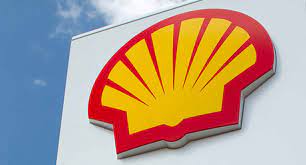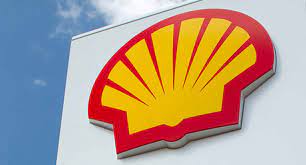
Higher oil and gas prices, excellent refining profits, and the strong performance of Shell's trading division helped the company post a record first-quarter profit of $9.13 billion on Thursday.
Shell, the last of the major energy companies to announce earnings, joins industry competitors BP and TotalEnergies in profiting handsomely from commodity price volatility sparked by Russia's invasion of Ukraine, which began on February 24. continue reading
Shell's stock surged 3.3 per cent in early trading, surpassing an oil and gas index that rose 1.8 per cent. Even after writing down $3.9 billion post-tax as a result of its decision to quit business in Russia, it topped its previous highest quarterly profits of 2008.
It is also reducing oil and gas exports to Russia.
The European Union's chief executive recommended a gradual oil embargo on Russia on Wednesday, which, if backed by member states, would be a watershed moment for the world's largest trading bloc, albeit no gas ban has been proposed.
"It will be a tough winter if we don't have any Russian molecules coming into Europe," Chief Executive Ben van Beurden told a conference call.
Shell announced it would discontinue all long-term Russian crude oil purchases by the end of the year, with the exception of two contracts with an unnamed "small, independent Russian producer."
Its long-term arrangements to acquire Russian liquefied natural gas will also cease, it warned (LNG).
Shell, the world's largest LNG trader, reported a 9 percent increase in quarterly LNG sales to 18.3 million tonnes. LNG is viewed as critical to Europe's transition away from Russian pipeline gas.
Shell has $1 billion in Russia assets on its balance sheet, including a dividend for its Sakhalin-2 LNG project stake, lubricant and retail station inventory, and a gas contract, according to Chief Financial Officer Sinead Gorman.
Because of the amount of energy corporations' profits, the opposition Labour Party in the United Kingdom has proposed a windfall tax to help individuals who are struggling to pay their energy bills due to the price hike.
The Conservatives, who are in power, have dismissed the proposal, claiming that it will prevent businesses from investing profits in the transition to lower-carbon energy.
Shell, on the other hand, is rewarding shareholders.
It stated its dividend payments and share repurchases totaled $5.4 billion in the first quarter, as part of a $8.5 billion stock repurchase plan.
As expected, the dividend was raised to 25 cents per share.
In the current environment, it expects shareholder distributions in the second half to exceed 30 per cent of cashflow.
First-quarter adjusted earnings increased 43 per cent over the previous quarter to $9.13 billion, exceeding the company's average analyst projection of $8.67 billion profit.
This compared to $3.23 billion in earnings a year ago.
Despite volumes declining to about 1.6 million bpd from 1.9 million, Shell's adjusted earnings from refining and marketing oil products increased to $1.17 billion, up from a loss of $130 million in the previous quarter and a profit of $781 million last year.
Shell's quarterly cashflow of $14.815 billion enabled it to reduce its debt load from $52.6 billion at the end of 2021 to $48.5 billion.
(Source:www.bbc.com)
Shell, the last of the major energy companies to announce earnings, joins industry competitors BP and TotalEnergies in profiting handsomely from commodity price volatility sparked by Russia's invasion of Ukraine, which began on February 24. continue reading
Shell's stock surged 3.3 per cent in early trading, surpassing an oil and gas index that rose 1.8 per cent. Even after writing down $3.9 billion post-tax as a result of its decision to quit business in Russia, it topped its previous highest quarterly profits of 2008.
It is also reducing oil and gas exports to Russia.
The European Union's chief executive recommended a gradual oil embargo on Russia on Wednesday, which, if backed by member states, would be a watershed moment for the world's largest trading bloc, albeit no gas ban has been proposed.
"It will be a tough winter if we don't have any Russian molecules coming into Europe," Chief Executive Ben van Beurden told a conference call.
Shell announced it would discontinue all long-term Russian crude oil purchases by the end of the year, with the exception of two contracts with an unnamed "small, independent Russian producer."
Its long-term arrangements to acquire Russian liquefied natural gas will also cease, it warned (LNG).
Shell, the world's largest LNG trader, reported a 9 percent increase in quarterly LNG sales to 18.3 million tonnes. LNG is viewed as critical to Europe's transition away from Russian pipeline gas.
Shell has $1 billion in Russia assets on its balance sheet, including a dividend for its Sakhalin-2 LNG project stake, lubricant and retail station inventory, and a gas contract, according to Chief Financial Officer Sinead Gorman.
Because of the amount of energy corporations' profits, the opposition Labour Party in the United Kingdom has proposed a windfall tax to help individuals who are struggling to pay their energy bills due to the price hike.
The Conservatives, who are in power, have dismissed the proposal, claiming that it will prevent businesses from investing profits in the transition to lower-carbon energy.
Shell, on the other hand, is rewarding shareholders.
It stated its dividend payments and share repurchases totaled $5.4 billion in the first quarter, as part of a $8.5 billion stock repurchase plan.
As expected, the dividend was raised to 25 cents per share.
In the current environment, it expects shareholder distributions in the second half to exceed 30 per cent of cashflow.
First-quarter adjusted earnings increased 43 per cent over the previous quarter to $9.13 billion, exceeding the company's average analyst projection of $8.67 billion profit.
This compared to $3.23 billion in earnings a year ago.
Despite volumes declining to about 1.6 million bpd from 1.9 million, Shell's adjusted earnings from refining and marketing oil products increased to $1.17 billion, up from a loss of $130 million in the previous quarter and a profit of $781 million last year.
Shell's quarterly cashflow of $14.815 billion enabled it to reduce its debt load from $52.6 billion at the end of 2021 to $48.5 billion.
(Source:www.bbc.com)














